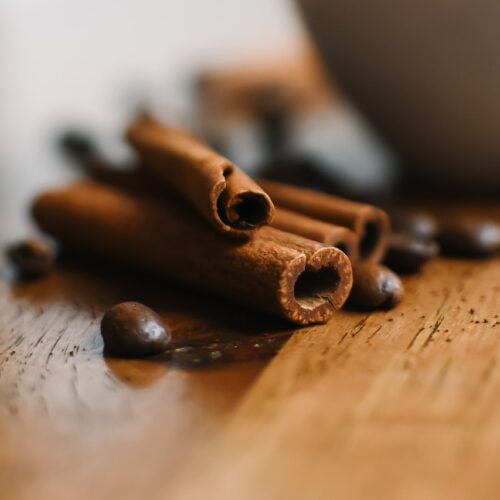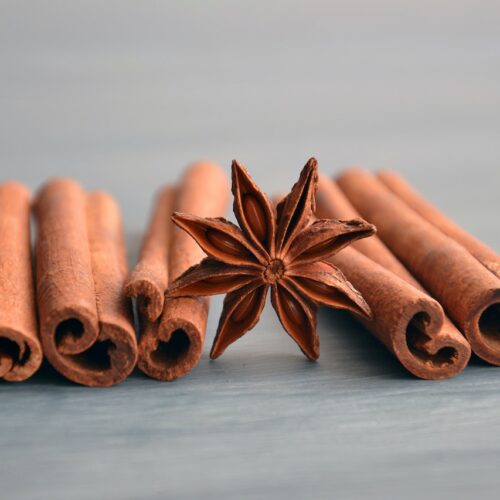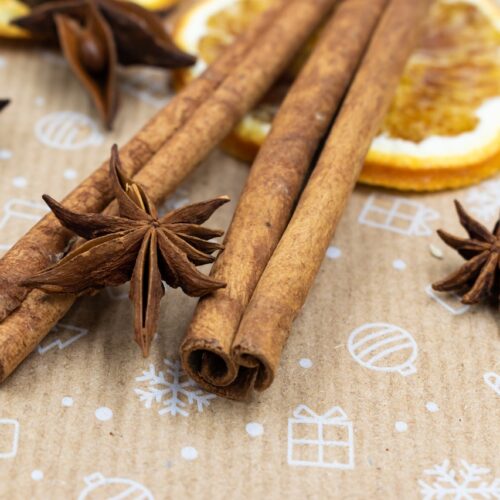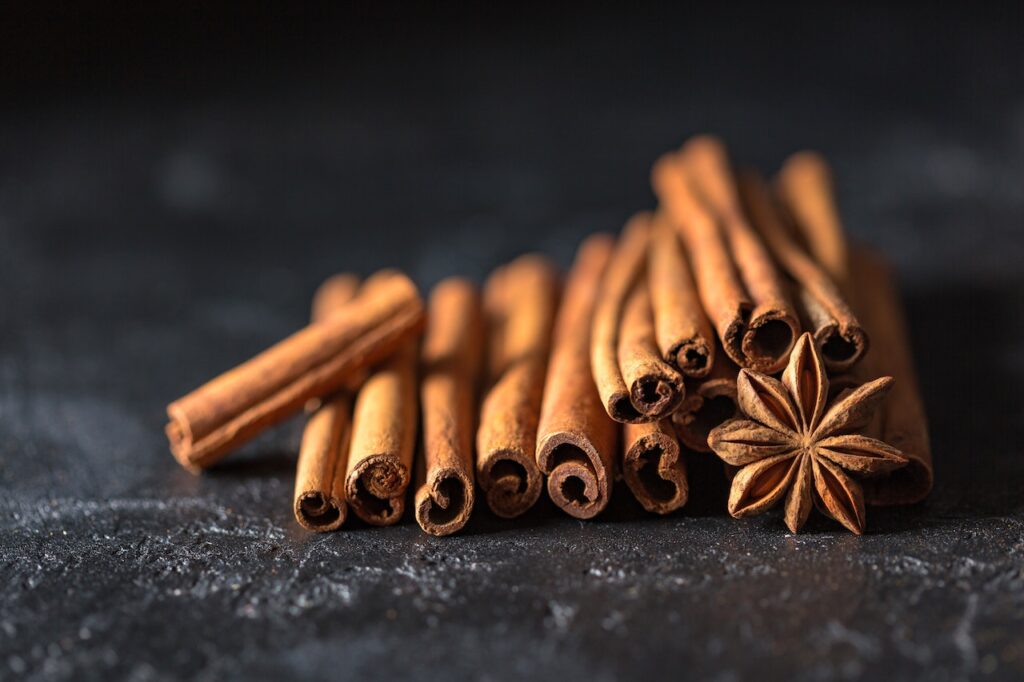
When it comes to the rich and aromatic world of Kashmiri cuisine, one cannot ignore the enchanting role that spices play in elevating every dish. Among these spices, one stands out for its unique flavor and fragrance – cinnamon.
The use of cinnamon in Kashmiri cooking is not just a culinary tradition; it’s a testament to the artistry of this cuisine. Let’s explore the significance of cinnamon in Kashmiri cooking, its historical roots, and how it contributes to the rich tapestry of flavors in this renowned regional cuisine.
What is Cinnamon Called in Kashmiri?
| English Name | Kashmiri Name | Hindi Name |
| Cinnamon | Dalcin / डाल्चिन | Dalchini / दालचीनी |
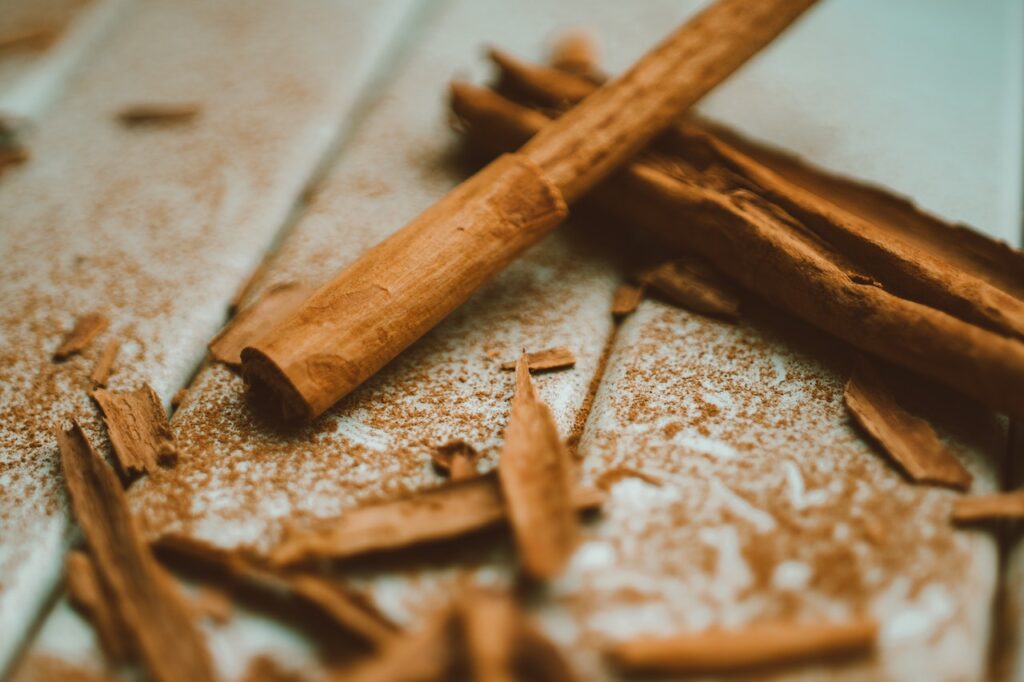
History of Cinnamon in Kashmiri Cooking
Before getting into the elaborate details of how cinnamon is used in Kashmiri cooking, it’s essential to understand the historical context of this spice in the traditional food of Kashmir.
Historical Significance of Cinnamon in Kashmiri Cuisine:
- Cinnamon has been a prized spice in Kashmir for centuries, dating back to ancient times when the Silk Road facilitated trade between India, China, and the Mediterranean.
- Its value in Kashmiri cuisine is closely linked to the region’s historical trade routes, as traders often brought this prized spice to the valley.
- Cinnamon was considered an exotic and valuable ingredient, and it was reserved for special occasions and feasts.
Cinnamon’s Refreshing Aroma
Cinnamon, derived from the bark of the Cinnamomum tree, is celebrated for its warm, sweet, and slightly spicy flavor. In Kashmiri cooking, it plays a pivotal role in infusing dishes with an enticing aroma and a unique taste profile. Let’s explore how cinnamon enhances the culinary experience of Kashmiri cuisine.
Aromatic Properties of Cinnamon
- Cinnamon imparts a sweet and woody flavor with hints of spiciness, making it a versatile spice in Kashmiri cuisine.
- It adds depth and complexity to dishes without overwhelming other flavors.
- In traditional Kashmiri recipes, cinnamon is used judiciously to strike the perfect balance, making it an indispensable spice.
Aromatic Effects of Cinnamon
- The fragrant quality of cinnamon elevates Kashmiri dishes, creating a sensory experience that is truly unforgettable.
- The aroma of cinnamon is particularly important in slow-cooked dishes, as it infuses the entire dish with its enticing fragrance.
- The scent of cinnamon is often associated with warmth, making it a perfect fit for Kashmiri cuisine, which is enjoyed in both cold and moderate climates.
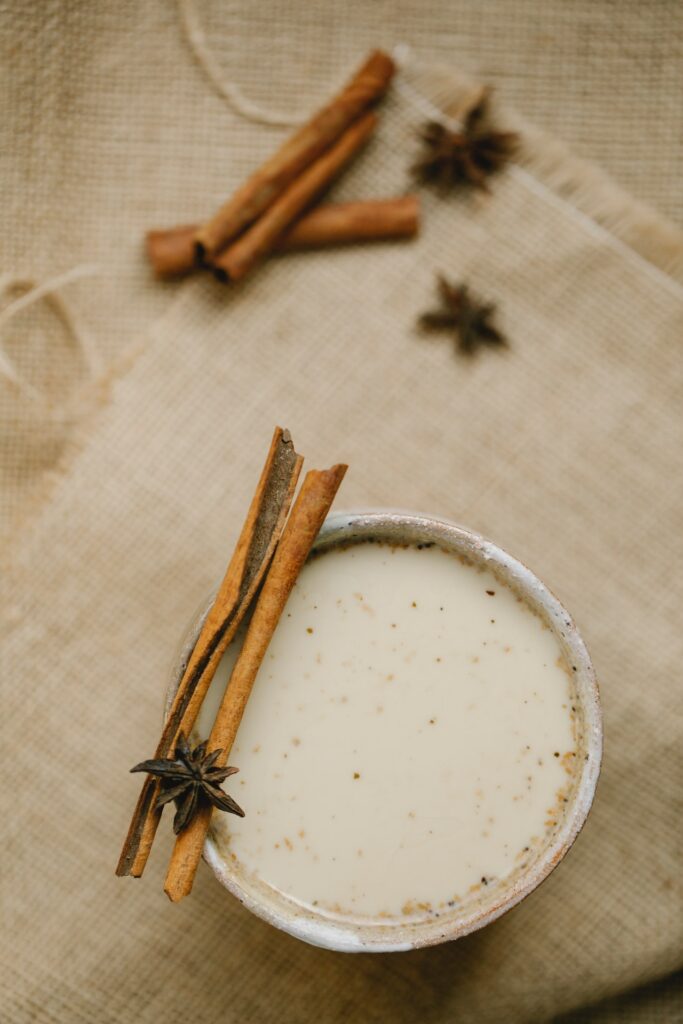
Versatility of Cinnamon in Kashmiri Cuisine
Cinnamon is a versatile spice in Kashmiri cooking, finding its place in various culinary applications. Here, we explore how it adds depth and dimension to various dishes.
1. Rogan Josh:
- Cinnamon is a key component in the spice blend used to prepare Rogan Josh, one of the most famous Kashmiri dishes.
- It contributes to the dish’s rich, red color and imparts a unique flavor profile that is a blend of sweet and spicy.
2. Yakhni:
- In Kashmiri Yakhni, which is a curd-based curry, cinnamon adds a subtle warmth and depth to the sauce.
- The balance of spices in Yakhni, with cinnamon as an essential component, creates a harmonious and comforting taste.
3. Dum Aloo:
- In Dum Aloo, cinnamon plays a role in the slow cooking process that results in tender, flavorful potatoes with a delightful hint of sweetness.
- The fragrance of cinnamon complements the rich tomato-based gravy in this dish.
4. Kehwa:
- Kehwa, the traditional Kashmiri green tea, is infused with spices, including cinnamon.
- Cinnamon in Kehwa lends a warm and soothing note to the tea, making it the perfect beverage to combat the cold weather of Kashmir.
5. Wazwan:
- In the grand feast of Wazwan, which features a myriad of dishes, cinnamon is a vital component in many recipes.
- It ensures that each dish in the feast maintains a unique, authentic flavor.
6. Biryani and Pulao:
- Cinnamon finds its way into Kashmiri biryani and pulao, where it marries the flavors of aromatic spices with the richness of meat and rice.
- The result is a delightful melange of tastes that reflects the region’s culinary heritage.
Types of Cinnamon in Kashmiri Cooking
Cinnamon in Kashmiri cooking is not merely added for flavor; it’s infused into dishes with a methodical approach. This process allows the spice to blend seamlessly with other ingredients, creating a harmonious flavor profile.
1. Whole Cinnamon Sticks:
- Whole cinnamon sticks are often used in Kashmiri cuisine, primarily during the tempering process.
- By adding them to hot oil or ghee, the natural oils and aroma are released, enhancing the flavor of the dish.
- The sticks are often removed before serving, leaving behind a subtle, lingering essence.
2. Cinnamon Powder:
- Cinnamon is ground into a fine powder and added to spice blends like garam masala.
- The powdered form ensures an even distribution of flavor throughout the dish, creating a balanced taste.
3. Cinnamon Bark:
- In some traditional recipes, especially those involving slow cooking or simmering, pieces of cinnamon bark are used.
- The bark releases its flavors slowly, infusing the entire dish with its essence over time.
Cinnamon in Kashmiri Sweet
While the discussion so far has focused on the savory side of Kashmiri cuisine, cinnamon also plays a significant role in the region’s sweet treats. Here’s how cinnamon adds an enticing dimension to Kashmiri desserts.
1. Phirni:
- In Phirni, a rice pudding, cinnamon is used to season and flavor the dish.
- It imparts a warm, sweet note that contrasts beautifully with the creamy, rice-based dessert.
2. Shufta:
- Shufta, a traditional dry fruit and nut mix, features cinnamon as one of its primary flavorings.
- The spice complements the sweetness of the dried fruits and adds a layer of warmth to this beloved Kashmiri confection.
3. Sevai:
- Cinnamon is often used in sweet sevai, a vermicelli dessert.
- It provides a gentle spiciness that balances the sweetness of the dish, creating a well-rounded dessert experience.
What are The Health Benefits of Cinnamon?
Beyond its culinary value, cinnamon brings several health benefits to the table when used in Kashmiri cooking. It’s not just a flavor enhancer; it’s also a natural remedy.
1. Anti-Inflammatory Properties:
- Cinnamon possesses anti-inflammatory compounds that can help reduce inflammation in the body.
- This property is particularly beneficial in Kashmiri cuisine, as it often features rich, hearty dishes.
2. Digestive Aid:
- Kashmiri cuisine can be heavy and rich, and the addition of cinnamon aids digestion.
- It can help alleviate common digestive discomforts and bloating that may arise from consuming such a cuisine.
3. Blood Sugar Management:
- Cinnamon has been studied for its potential to help regulate blood sugar levels.
- This is an essential aspect of the spice, especially in Kashmiri dishes with sweet components.
4. Antioxidant Properties:
- The antioxidants present in cinnamon can help protect the body’s cells from oxidative stress.
- This property contributes to overall health and well-being, making cinnamon a valuable addition to the diet.
People also ask
-
What does cinnamon taste like?
Cinnamon has a warm, sweet, and slightly spicy taste. It’s subtly sweet, with a comforting warmth and a hint of earthiness, making it versatile in various dishes.
-
Where cinnamon is grown in India?
Cinnamon is primarily grown in the southern states of India, including Kerala, Karnataka, and Tamil Nadu. These regions provide the ideal tropical climate for cinnamon cultivation.
-
Which cinnamon is best?
Ceylon cinnamon, with its sweeter and delicate flavor, is often considered the best for culinary use. Cassia cinnamon offers a stronger, bolder taste for different preferences.
-
Should Cinnamon Be Refrigerated?
No, cinnamon does not need to be refrigerated. It should be stored in an airtight container in a cool, dark place, away from direct sunlight and moisture to maintain its freshness and flavor.
-
How To Reduce Cinnamon Taste In Curry?
To reduce the cinnamon taste in curry, add more of other spices, use acid (lemon juice or yogurt), balance with sweetness (sugar, honey), dilute with liquid, or adjust the cooking time.
Conclusion
In Kashmiri cuisine, where every dish tells a story of tradition, culture, and artistry, cinnamon emerges as a spice of immense significance. Its warm, sweet aroma and versatile flavor profile make it an indispensable ingredient in the Kashmiri kitchen. Whether it’s the iconic Rogan Josh, the comforting Yakhni, or the soul-warming Kehwa, cinnamon weaves its magic, elevating every dish to a culinary masterpiece.
In the heart of Kashmiri cuisine, amidst the myriad of spices and flavors, cinnamon reigns supreme, weaving its aromatic spell and adding a touch of warmth to every dish it graces. Indeed, Cinnamon in Kashmiri Cooking isn’t just an ingredient; it’s a story, a tradition, and a culinary masterpiece waiting to be savored.

